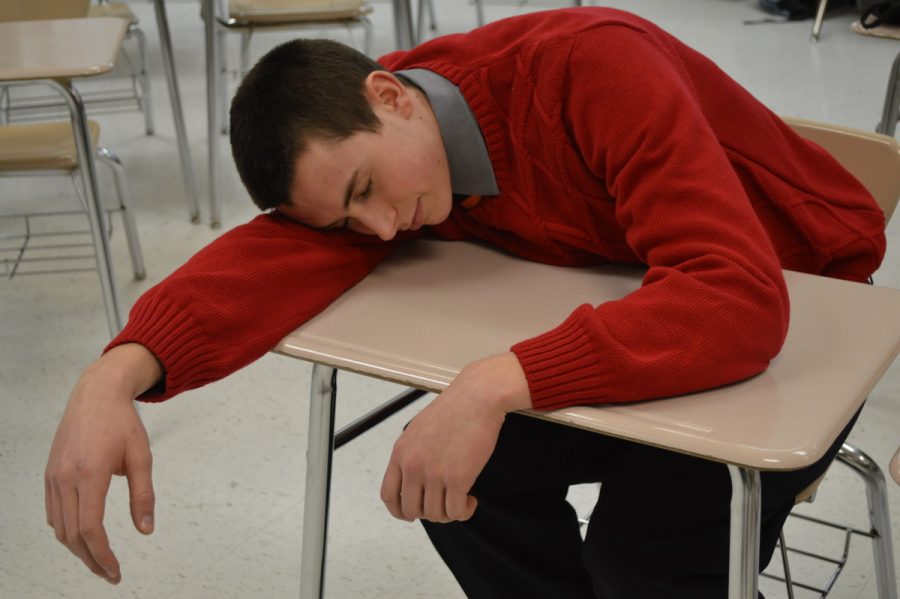Board of Education Holds Hearing on Sleep Deprivation and Potential Change in Bell Schedule
January 26, 2015
Sleep-deprived teens file into fluorescently-lit classrooms at 7:25 a.m. every day, rubbing their eyes in exhaustion from late nights.
It is almost at full consensus that the children of MCPS need more time to sleep in the mornings; the new topic of debate is how much more, as discussed on Jan. 22 at a Board of Education hearing. Attendees stood up at the podium to offer their concerns about the amount of sleep children average per night with their ever-growing and changing bodies.
Each testimonial was limited to under three minutes as to allow all participants to get a say. Participants quoted various sleep studies and told anecdotes about their child’s experiences.
Speeches overwhelmingly came to the same idea: students need more sleep than they are getting and the mere twenty minutes added to the bell schedule as Superintendent Dr. Joshua Starr recommends simply will not suffice.
Many parents such as Pamela Coukos, who has a son at Takoma Park MS, struggle with waking their child up for school. “Just waking up takes 20 minutes on a good day a�� [my child] is literally crawling out of bed because he’s too tired to stand up,” Coukos said in her testimony.
Issues regarding a later bell schedule include after school activities and budget, as the change in times would have a domino effect. Moira Ratchford, a participant in the hearing, points out that the approximate $5 million it would take to adjust the schedules is minimal in comparison to the $2 billion MCPS has in its budget.
Cheryl Perry, another participant, developed after school enrichment programs in PG county, which has integrated a more student-friendly bell schedule already. Perry said she observed many positive outcomes such as a decline in drug and alcohol abuse as well as risky behaviors in teens across the county.
“You give [teens] that extra time in the morning, and I guarantee you they will not be getting up at 7 a.m. to have a house party,” Perry said. “They will do what they desperately need to do for the benefit of their physical and mental health: sleep.”
As portrayed through a plethora of presentations, a teenager’s “internal alarm clock” causes them to get tired at later times, subsequently making them sleep in much later due to the fact that their growing bodies need at least nine hours of sleep a night. “[Teenagersa��] circadian rhythms are a force more powerful than the politics of this county,” sleep specialist Helene Emsellem said during her address.
Speakers constantly pointed out the repercussions of losing sleep. “This is something that would address a problem that we, as a society, will end up paying for 10 times over in mental health problems, obesity and poor academic performance if we don’t solve it,” Ratchford said during her statement.





Connie Cremins • Feb 3, 2015 at 11:33 am
Wake up Kellen. I vote "yeah" for later H.S. start time. GO RAMS Love Mom